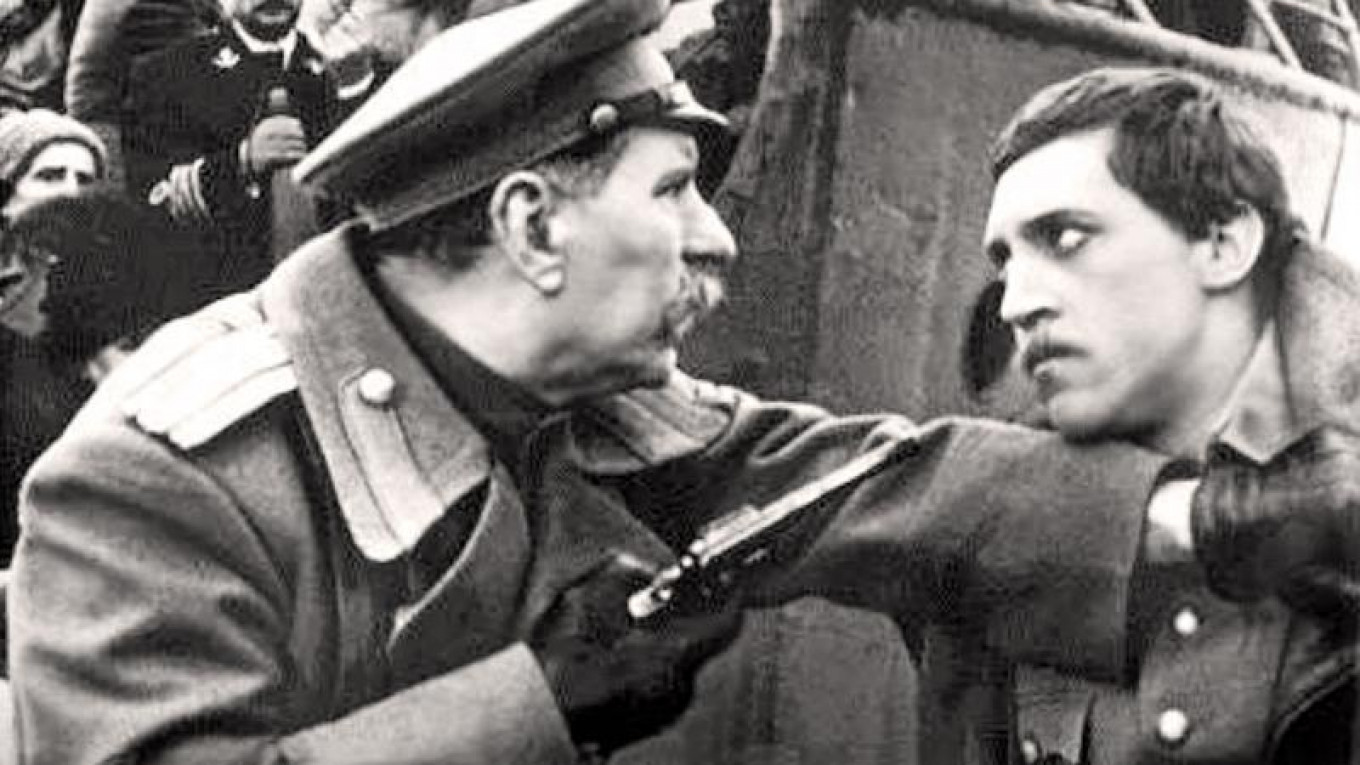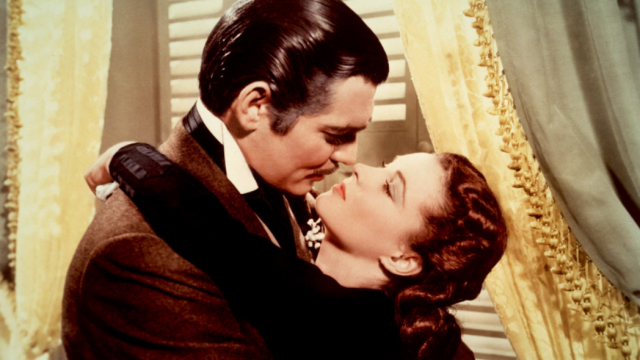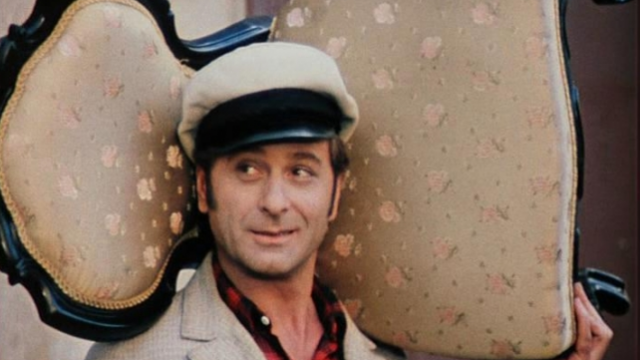Now that you’ve
seen why the Great October Socialist Revolution actually took place in November
– a rain delay, of course – you can be even more grateful that Moscow TV is
giving you good reason to stay indoors. This week you’ll see the Soviet Union’s
amazing airborne white elephant, the greatest Russian poet from Kiev and North
Carolina, a Crimean conflict of another era, a genuine Russian Renaissance Man
and some spicy Soviet sex the whole world peeped at. Read on for the where and
when.
On Monday Kultura offers an instructive early example of the state misleading people on the cause of an airplane disaster in the documentary The Flying Titanic (2012). The Soviet Union built and sent aloft the gigantic eight-engine 'Maxim Gorky” in 1934 to demonstrate its leading role in aircraft construction and capability. The slow but spacious “propaganda plane” carried its own printing press, a darkroom, a pneumatic postal system, an internal telephone exchange, a messaging system now seen as “a prototype of Twitter” and a loudspeaker system (“The Voice from the Sky”) for addressing earthbound admirers beneath it. Yet on May 18, 1935, the "Maxim Gorky” crashed outside Moscow, killing all aboard and causing a furor in the state apparatus – which desperately needed, as you’ve probably guessed, someone to blame. Tune in The Flying Titanic to find out who took the fall and decide for yourself what was better served – justice or a winning propaganda narrative.
Declassified History: The Flying Titanic Рассекреченная история. "Воздушный титаник”. Kultura,
Monday at 6:45 p.m.
In Russia a poet is more than a poet, as the famous line from Yevgeny Yevtushenko has it, but the celebrated Naum Korzhavin is even more than that. Laureate of Russia’s distinguished Big Book prize (2006) for a lifetime of contributions in verse, prose, drama and translation, Korzhavin is a Russian-language writer of Jewish descent who was born in Kiev and now lives in North Carolina. The first half of his biography is a sobering chronicle of what could go wrong with a Soviet life – false arrest, imprisonment, psychiatric-hospital confinement and internal exile as a “socially dangerous element” – and yet the poet’s days are drawing toward their end with an enviable coda: earlier this year he followed Yevtushenko and 10 others as the winner of the country’s prestigious “Poet” award.
Korzhavin turns 91 this week, and Kultura is honoring him with Pavel Mirzoev’s outstanding documentary Naum Korzhavin: Time Is Given… (2016) – the first nonfiction film ever to win the Grand Prix at the Gatchina International Literature and Art Festival.
Naum Korzhavin: Time Is Given…Наум Коржавин. Время дано...Kultura, Tuesday at 10:35 p.m.
The mini-genre of Soviet Movies About Making Movies in the Crimea During the Russian Civil War consists of two films, only one of which drew much notice in the West: Nikita Mikhalkov’s A Slave of Love (1975) won several U.S. awards and did very well in art houses worldwide. But Yevgeny Karelov’s earlier Two Army Comrades (1968) is a better film – ask any Russian – and surely rates more attention now. “Comrades” features two icons of Soviet/Russian performing arts – the late Oleg Yankovsky and the immortal Vladimir Vysotsky – plus a cast so good it feels cheap to call it “supporting.” And the film’s provenance? Two American anti-war classics – Lewis Milstone’s All Quiet on the Western Front and Stanley Kubrick’s Paths of Glory – have been cited as Karelov’s points of reference for this tragicomic anti-war epic, a Soviet production that somehow summons up real feeling for Russia's Whites, the mortal enemies of the Party which paid to make the movie. There's your irony supplement for the day. Tune in and appreciate some fine film-making indeed, set in an earlier but no less conflicted Crimea.
Two Army Comrades Cлужили два товарища. Dom Kino, Wednesday at 9:15 p.m.
Having ignored (or finessed) the western Renaissance, the east Slavs didn’t produce many Renaissance Men – which is why Pavel Florensky (1882-1937), the Russian priest, theologian, philosopher, physicist, mathematician, biologist, art historian and poet is nothing short of a revelation to Westerners who discover him. A good way to do that is through the Oleg Baraev documentary The Russian Leonardo (2007), a fine account of a hard life well lived. The multi-talented Florensky underwent a decade of harassment and intimidation by the Soviet state – internal exile (1928), arrest (1933), Siberian imprisonment and finally execution (1937) – for no particular reason beyond that state’s inability to tolerate belief in anything beyond itself. This was a certified Russian genius, called “the Pascal of our age” by Vasily Rozanov, whose gifts were infinitely broader and deeper than those of the people who could not leave him unincarcerated or above ground. Little wonder Father Pavel is missed here more with every passing year.
The Russian Leonardo Павел Флоренский. Русский Леонардо. Kultura, Thursday at 6:15 p.m.
Valentin Pichul’s Little Vera (1988) was likened by some outside the U.S.S.R.
to an exploitation film (“the Russian sex movie”) – which held a grain of truth
but in sum was very unfair. There is one (fairly) explicit bed scene in Vera, but the film’s real revelation was not that Soviet people had sex and, thanks
to perestroika, could now do it on camera. It was, rather, that real, ordinary
people – people far from Moscow living lives of quiet (and unquiet) desperation, verbally and physically abusing
each other as they secured the small advantages and modest pleasures available
to them – were now film-worthy. Some 55 million people paid to see the
hardscrabble Soviet reality that made up young Vera’s life because, as a commonly
expressed sentiment had it, “They finally made a movie about us.”
Maria Khmelik’s script
was (and is) a dialogue lesson for writers, and the first-rate acting on
display here, from Natalya Negoda’s Vera right down the line, was as
impressively naturalistic as anything put on film here before 1991. Vera was a survivor, and much of the surviving that
her story is about still describes what her country is about nearly thirty
years and two governments later. Tune in Vera and you’ll be dialing up an impressive display of Russian national
verities that won’t change or go missing any time soon.
Little
Vera Маленькая Вера. Domashny, Saturday at 12:30 a.m.
Mark H. Teeter is the editor of Moscow TV Tonite on Facebook
A Message from The Moscow Times:
Dear readers,
We are facing unprecedented challenges. Russia's Prosecutor General's Office has designated The Moscow Times as an "undesirable" organization, criminalizing our work and putting our staff at risk of prosecution. This follows our earlier unjust labeling as a "foreign agent."
These actions are direct attempts to silence independent journalism in Russia. The authorities claim our work "discredits the decisions of the Russian leadership." We see things differently: we strive to provide accurate, unbiased reporting on Russia.
We, the journalists of The Moscow Times, refuse to be silenced. But to continue our work, we need your help.
Your support, no matter how small, makes a world of difference. If you can, please support us monthly starting from just $2. It's quick to set up, and every contribution makes a significant impact.
By supporting The Moscow Times, you're defending open, independent journalism in the face of repression. Thank you for standing with us.
Remind me later.







